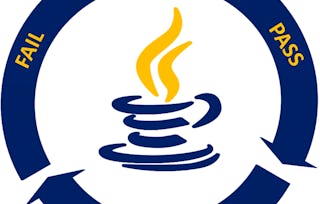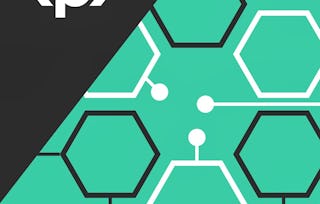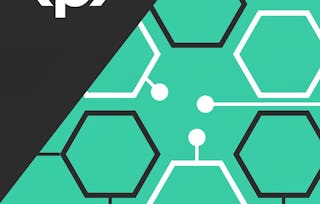Unlock reliable Java testing with our "Introduction to JUnit" course. Designed for students, junior developers, and QA testers who want to improve code quality and confidence, this course provides the essential foundations and practical tools of unit testing using JUnit 4 and JUnit 5. From understanding why unit tests matter to setting up JUnit, organizing tests, and integrating with build and CI tools, you’ll gain the skills to deliver maintainable, bug-resistant software.
即将结束: 只需 199 美元(原价 399 美元)即可通过 Coursera Plus 学习新技能。立即节省

您将学到什么
Explain unit testing principles and JUnit fundamentals.
Apply assertions, exception testing, and setup/teardown to validate behavior.
Implement parameterized tests, tagging/suites, and run tests in IDEs, Maven/Gradle, and CI.
Translate requirements into clear, maintainable test cases using mocks and fluent assertions.
您将获得的技能
要了解的详细信息

添加到您的领英档案
11 项作业
了解顶级公司的员工如何掌握热门技能

该课程共有3个模块
In the Java Fundamentals module, you will be introduced to the Java programming language, one of the most popular programming languages used for developing a wide range of applications. You will learn about the core components of the Java platform, including the Java Virtual Machine (JVM) and the Java class library.
涵盖的内容
12个视频4篇阅读材料2个作业
The Core Java module is a comprehensive training program that covers the fundamental concepts of the Java programming language. This module provides a deep understanding of Java programming and its key components. In this module, participants will learn about the essential concepts such as Java Syntax, Variables and Methods, Operators, & Control Statements. Throughout the module, participants will work on several assessments to reinforce their learning and improve their problem-solving skills. By the end of this module, participants will have a strong foundation in Core Java and be able to apply their knowledge to create robust and efficient Java applications.
涵盖的内容
29个视频3篇阅读材料4个作业
This module is designed to provide participants with an in-depth understanding of advanced object-oriented programming (OOP) principles and other essential concepts in Java programming. In this module, participants will learn about advanced OOP concepts such as inheritance, polymorphism, and encapsulation, and how to apply them to create efficient and reusable code. Participants will also learn about extension methods, interfaces, and abstract classes, which are advanced techniques used to manage classes and objects in Java. Furthermore, participants will gain an understanding of advanced topics in exception handling, such as creating custom exceptions and handling multiple exceptions, which are critical to improving the reliability and robustness of their code. Throughout the module, participants will work on several hands-on projects to reinforce their learning and improve their problem-solving skills. By the end of this module, participants will be able to apply their knowledge of advanced OOP concepts and essential Java programming concepts to develop efficient, scalable, and maintainable Java applications.
涵盖的内容
31个视频6篇阅读材料5个作业
位教师

从 Software Development 浏览更多内容
 状态:免费试用
状态:免费试用LearnQuest
 状态:免费试用
状态:免费试用University of Minnesota
人们为什么选择 Coursera 来帮助自己实现职业发展




常见问题
The course is designed to introduce the Java programming language to beginners. It covers the basics of Java, including syntax, data types, and operators. The course dives deeper into exception handling, file I/O, working with arrays, and object-oriented programming concepts. It also covers advanced topics like interfaces, abstract classes, encapsulation, multi-threading, concurrency, and commonly used data structures in Java.
This course is designed for those who are completely new to Java programming and want to develop a strong foundation in it. However, anyone interested in improving their Java programming skills can benefit from this course.
In the Java Fundamentals module, you will be introduced to the Java programming language and learn about its core components including the Java Virtual Machine (JVM) and the Java class library. You will also learn about the language's syntax, data types, and operators.
更多问题
提供助学金,








